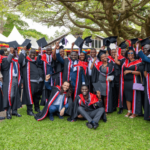Public universities in Uganda have registered opposition to the Ministry of Education’s proposed plan that all students join a school as a practicing teacher on compulsory one-year internship. The universities claim this move will impose an unnecessary cost burden on the institutions and increase the workload for the already stressed headteachers.
Currently, students of teaching go for school practice twice: once as an internship after the second year and the final year before graduating. The Ministry’s proposal to make the internship a full year has raised a storm in public universities that argue the additional requirement is not only unnecessary but also unworkable.
They also promised to replace a one-year internship with an integrated school practice throughout the first three years of studying. This, in their terms, would provide gradual hands-on experience, combined with concurrently earned theoretical knowledge for the students. Their students at graduation would be prepared for active work, they claimed, without their needing to go through an extra internship year.
Public universities have also indicated that the proposed extension of internship will be associated with financial challenges. Many institutions might not afford the costs associated with a full-year program, especially in housing and allowance for student teachers. This, coupled with logistical challenges with the placing of large numbers of interns in schools, has driven strong resistance from these institutions.
In this respect, the Ministry of Education targets enhancing practical skills among future teachers. However, on the other side, public universities find a more balanced approach-a fusion of school practice and academic learning-to be more helpful for graduates without unduly increasing financial and logistical burdens.













